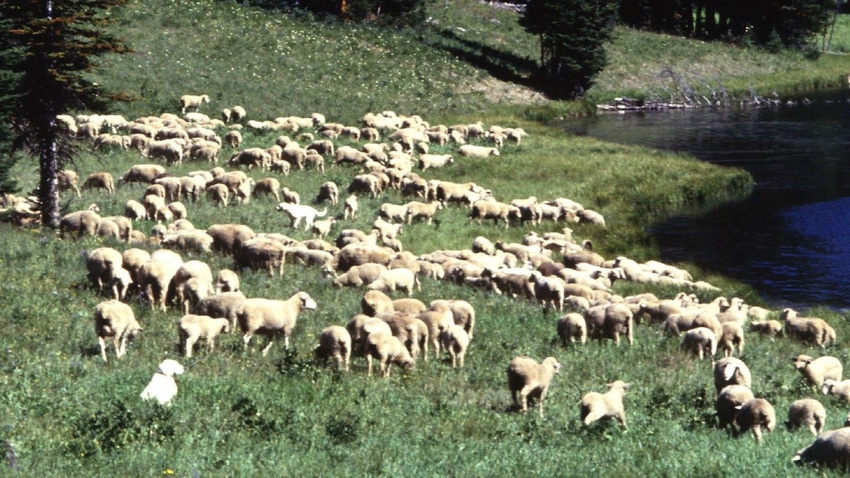December 8, 2023

Colorado’s departments of Agriculture and Parks and Wildlife have signed an agreement to collaborate on managing the reintroduction of gray wolves to the state and work to prevent wildlife and livestock conflicts.
The MOU directs the agencies to work together to create and share information and prevention strategies and work to ensure that agriculture producers and landowners have the appropriate support through the process. The MOU also includes specific objectives for both agencies that utilize the different expertise and resources CPW and CDA contribute.
Under the MOU, CDA will work directly with producers to provide technical assistance for non-lethal prevention methods and develop appropriate livestock management strategies that minimize livestock-predator interactions. CDA will also work with leaders from Colorado’s agricultural communities to maximize the use of non-lethal tools through education and community sharing of strategies that minimize livestock-wildlife conflict.
“Supporting agricultural producers in addressing predator conflicts through non-lethal methods is vital to maintaining a vibrant livestock sector and protecting Colorado’s wildlife,” said Commissioner of Agriculture Kate Greenberg. “I’m excited to build on our excellent relationship with CPW to provide another form of technical assistance and support to Colorado’s livestock producers.”
CPW will collaborate closely with CDA to help facilitate successful non-lethal tools and strategies in predator management. The agencies will develop and co-brand educational materials about non-lethal livestock management practices.
“This MOU shows how committed both CDA and CPW are to working collaboratively to assist livestock and agricultural producers in reducing the risk of conflict through proactive and data-driven efforts,” said CPW Director Jeff Davis.
Both agencies will also coordinate on a program that captures and analyzes data about depredation and uses peer-to-peer sharing to engage producers in deploying non-lethal tools. The goal is to measure the effectiveness of outreach and engagement strategies on the adoption of non-lethal tools and livestock management strategies that minimize depredations and conflict with wolves and other carnivores.
Management flexibility
In support of the statewide voter-led initiative to reintroduce wolves, which passed in November 2020, the U.S. Fish and Wildlife Service has finalized the designation of an experimental population of gray wolves (Canis lupus) in Colorado under section 10(j) of the Endangered Species Act. This action, which takes effect today, Dec. 8, allows reintroduced wolves to be managed by hazing, removal, or relocation by Colorado Parks and Wildlife, Native American tribes, or designated agents for livestock depredations.
Colorado intends to reintroduce the gray wolf in a portion of the species' historical range in Colorado by Dec. 31.
“The USFWS’s announcement is an affirmation that we’re on track to reintroduce wolves in 2023 with the ability to utilize the appropriate management tools,” Davis said.
Additional information, documents, and frequently asked questions about the experimental population designation can be found at https://www.fws.gov/coloradowolf.
Source: Colorado Department of Agriculture, U.S. Fish and Wildlife Service
You May Also Like




